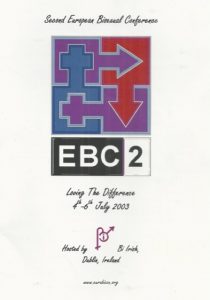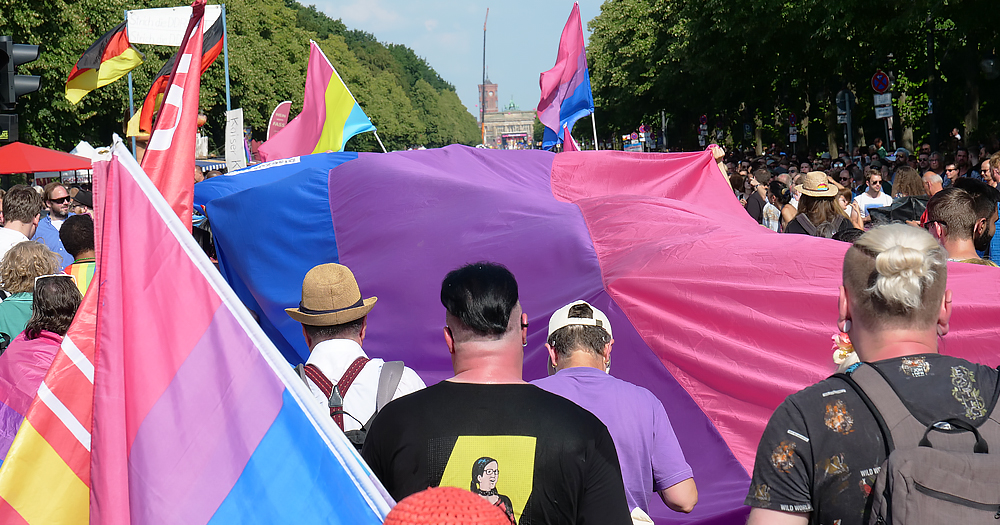All too often the question is asked, “why do we need a Bi Visibility Day?” but the question is self-serving. If you don’t understand why the day is necessary, it’s all the more so. Whilst bisexual forms the third letter in the LGBTQ+ acronym, it is still one of the most under-represented sexualities in the queer spectrum making bi activism on our shores and globally continually necessary.
From the assumption that Bisexuals are either ‘sitting on the fence’ or ‘being greedy’, to the common assumption that ‘they’re just going through a phase’ or, worst of all, being considered a ‘traitor to the community’, it is evident that bisexuality is one of the most oppressed and underrepresented identities within the LGBTQ+ spectrum.
So when and how did the Bi Visibility Day come about?
Bi Visibility Day or Celebrate Bisexuality Day, was first inaugurated on September 23 1999 by three members of the International Lesbian and Gay Association during a Conference in Johannesburg, South Africa. Founders, Wendy Curry, Michael Page, and Gigi Raven Wilbur viewed the day as a way to address the prejudice and marginalisation of the bisexual community.
By 2014, Bi Visibility Day had become more widely celebrated. The bisexuality activist organisation, BiNet USA, declared the week around September 23 to be Bi Awareness Week, citing that the week was intended to accelerate acceptance of, draw attention to the experiences of, and celebrate the resilience of, the community.
Origins of Irish Bi activism
Ireland was not behind in keeping up with the trend in Bi activism. As early as 1996, Jane Freeman and Jude Cosgrove founded Bi Irish. They were quickly joined by fellow activist Darragh Doherty. The group established monthly meetings to act as both a support network for people identifying as bisexual but also to meet similar objectives in increasing visibility and awareness.
Many of the group regularly attended the annual BiCon UK and in 2001 delegates attended the first European BiCon in Rotterdam. During this conference, Ireland was elected to host the second European BiCon in 2003.
The event ran across two days in July. The keynote speaker at the conference was Robin Ochs, a Boston-based writer, lecturer, and leading bisexual activist. Workshops covered topics such as sexual health, befriending, visibility and awareness. Although Bi Irish continued to run monthly meetings throughout the 2000s, by the end of the decade the group had disbanded as members focused their activism on different areas.

Formation of Bi+ Ireland
Leading up to 2012, Aoife Fitzgibbon O’Riordan had been facilitating workshops during Pink Training events at universities across the country. Through the workshops, Aoife identified a renewed appetite to form a network to support the Bi community.
In response, they founded Bi+ Ireland. The network, which is still active today, focuses on supporting all sexualities that identify beyond binary attractions such as pansexual, polysexual, fluid, etc.
© 2021 GCN (Gay Community News). All rights reserved.
Support GCN
GCN is a free, vital resource for Ireland’s LGBTQ+ community since 1988.
GCN is a trading name of National LGBT Federation CLG, a registered charity - Charity Number: 20034580.
GCN relies on the generous support of the community and allies to sustain the crucial work that we do. Producing GCN is costly, and, in an industry which has been hugely impacted by rising costs, we need your support to help sustain and grow this vital resource.
Supporting GCN for as little as €1.99 per month will help us continue our work as Ireland’s free, independent LGBTQ+ media.
